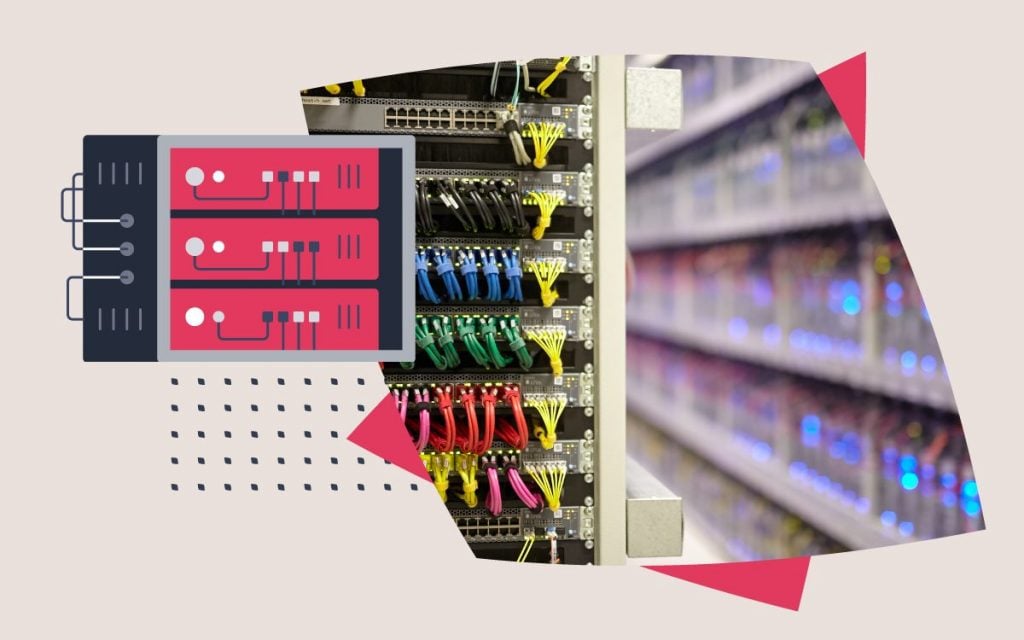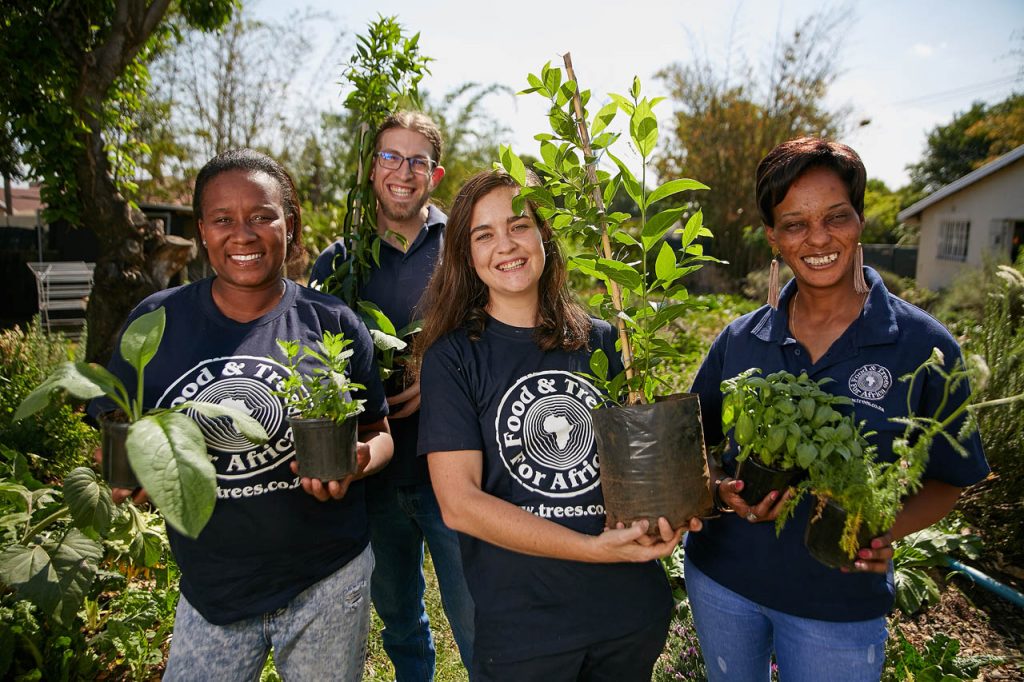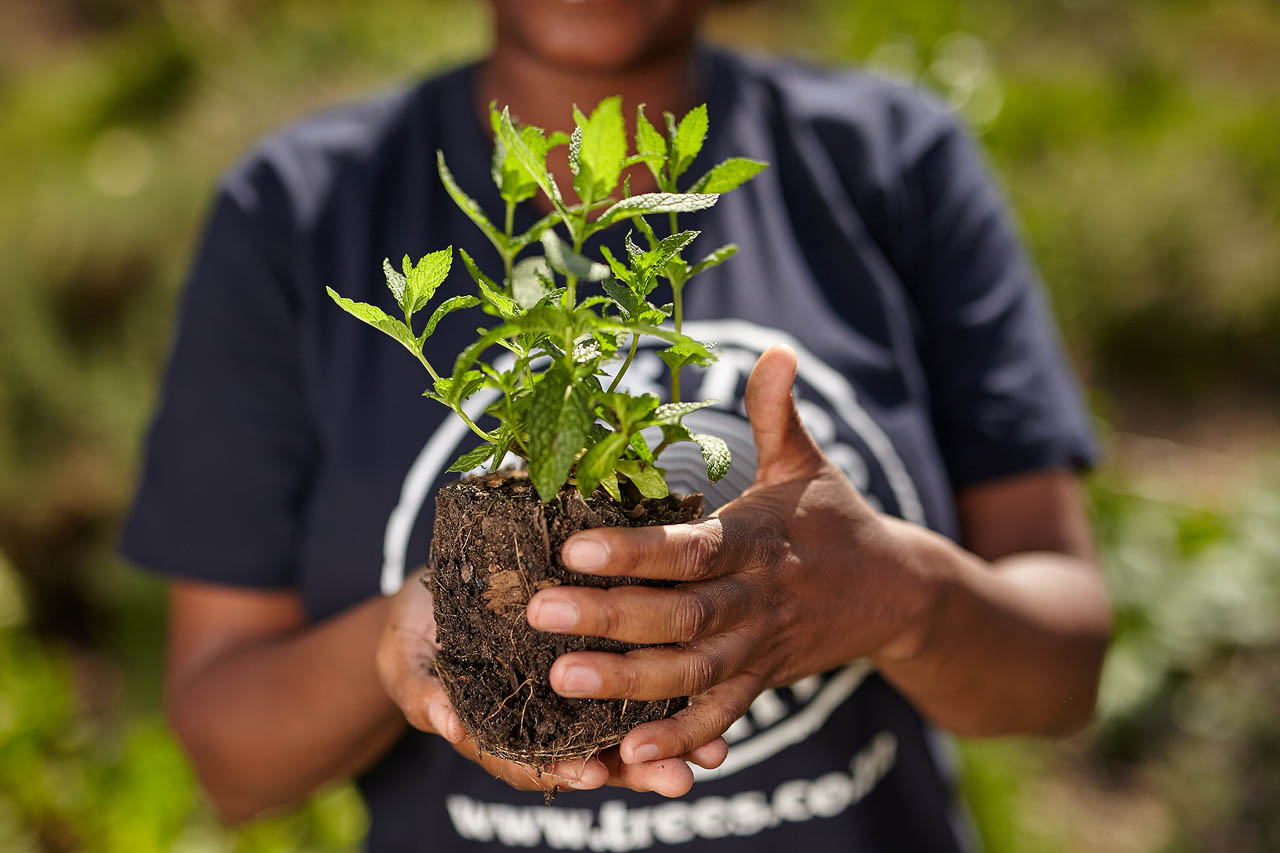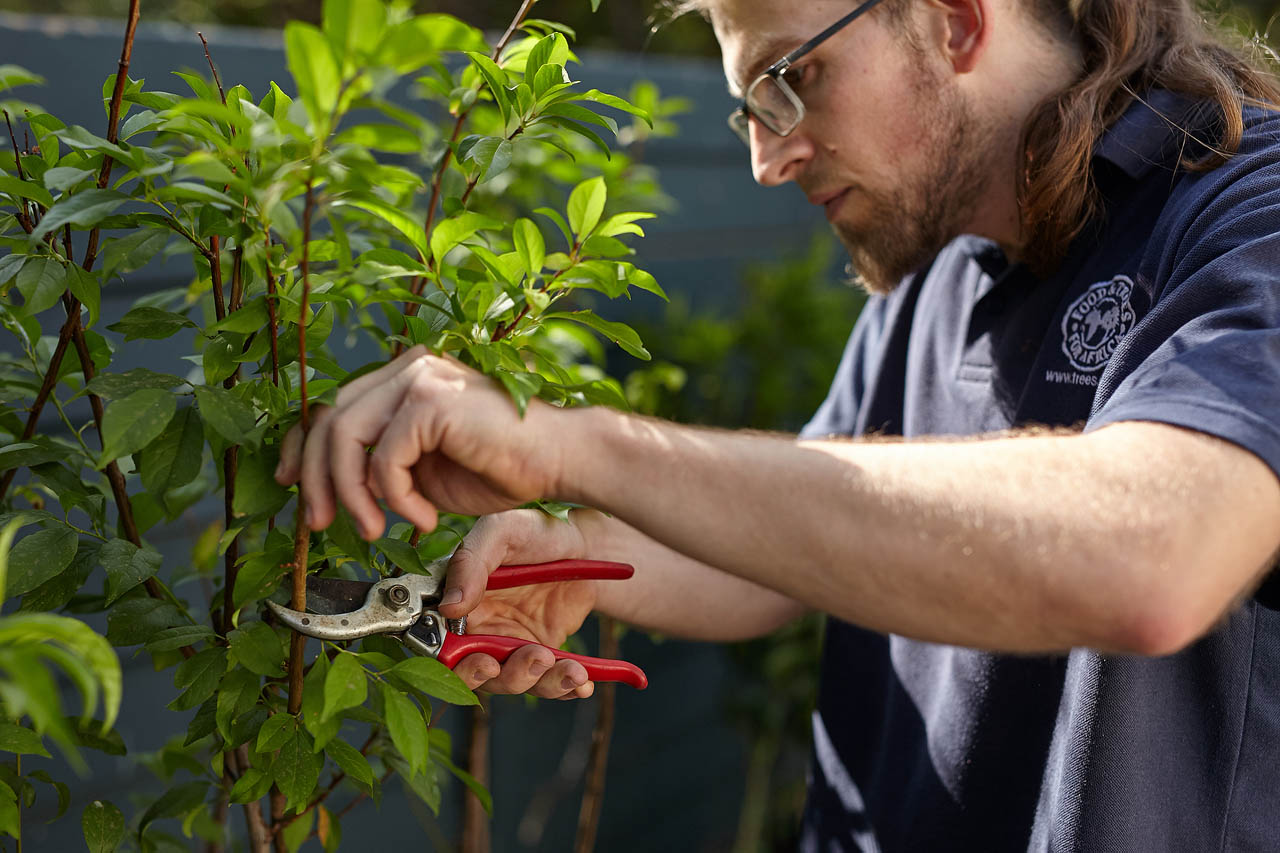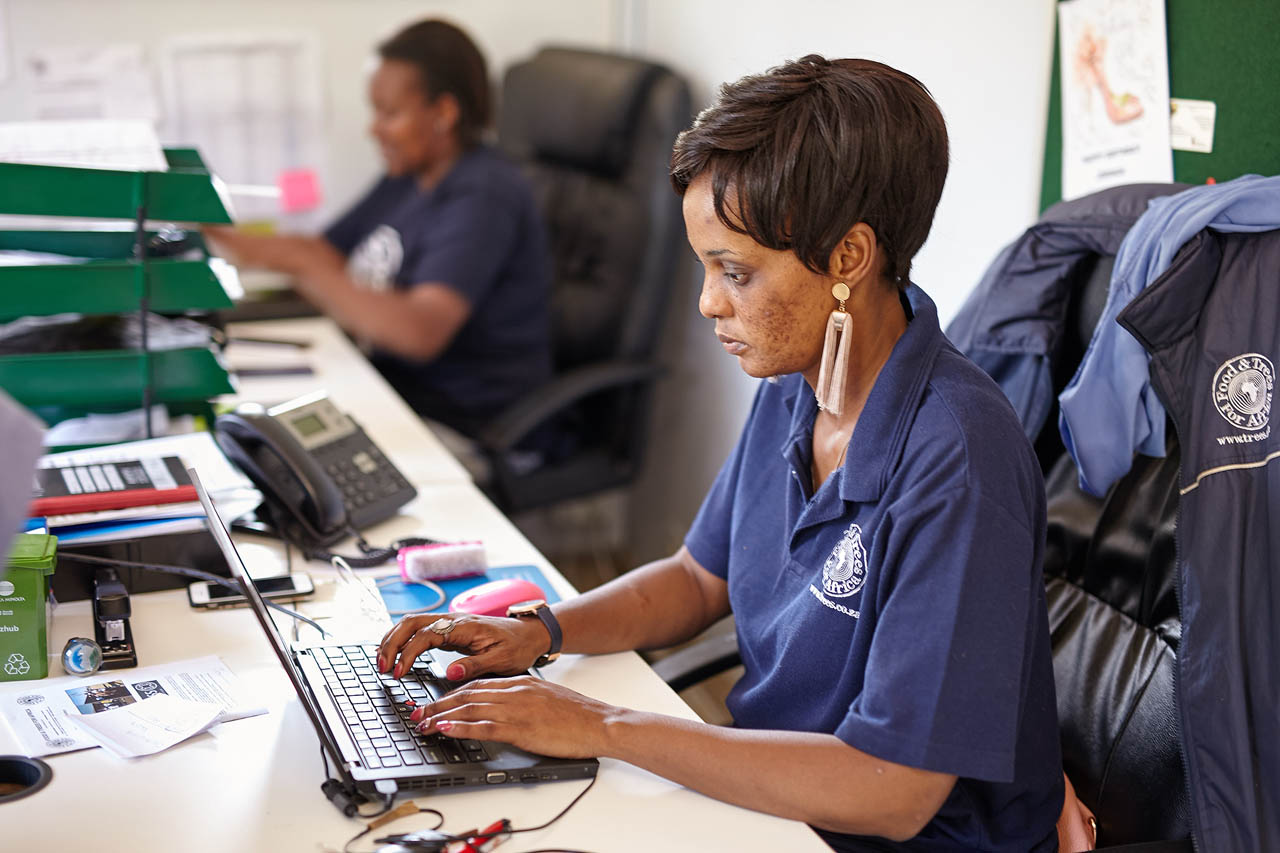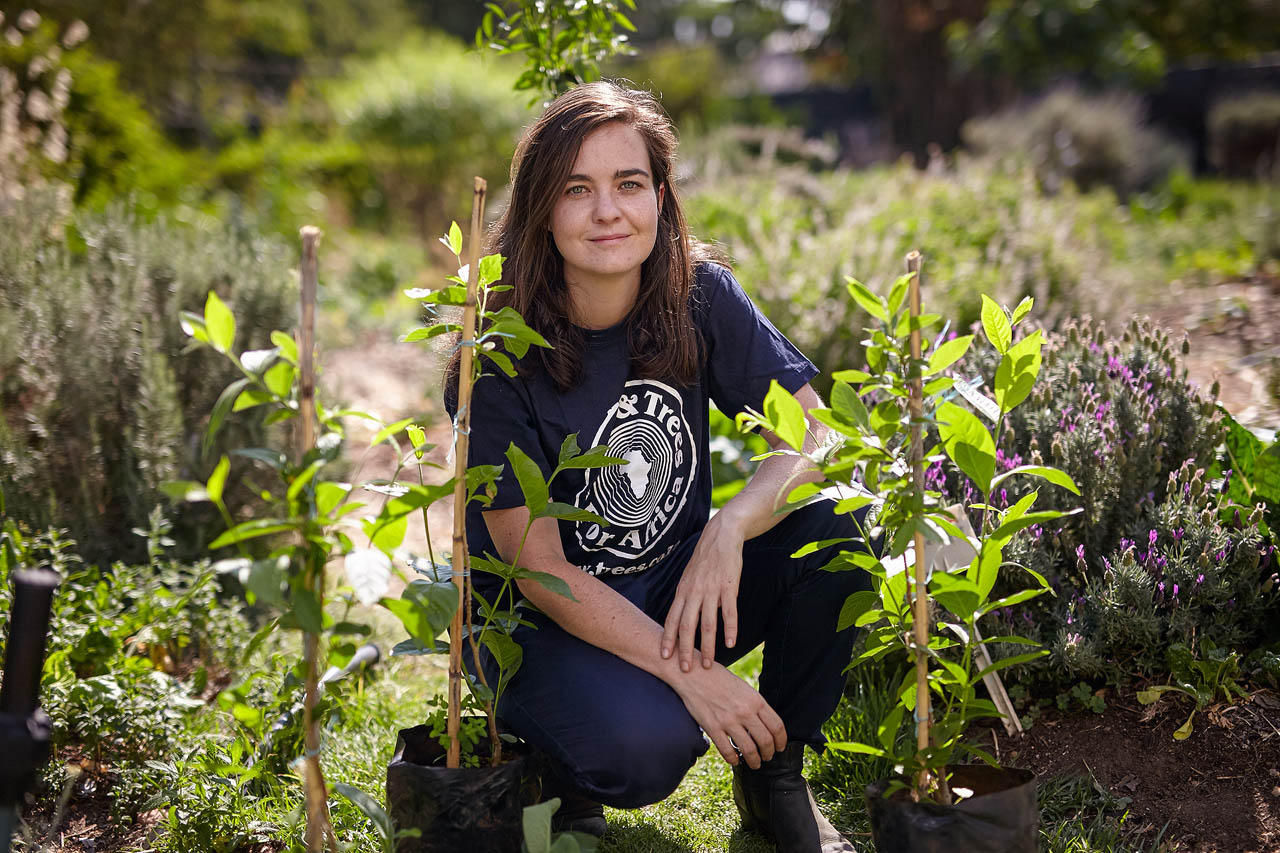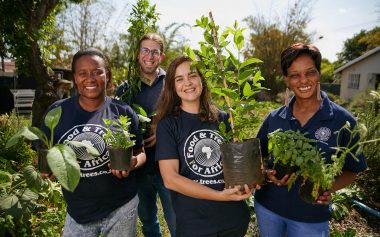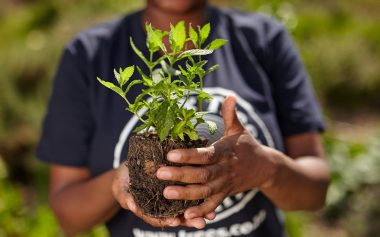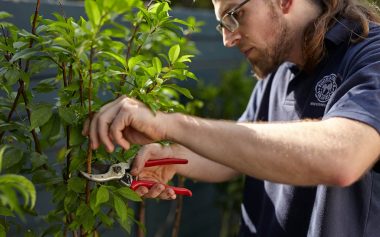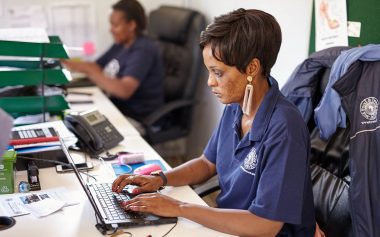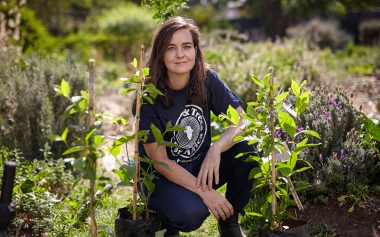“Our vision is for everyone to have access to good, clean, naturally grown food that promotes health and happiness. A society made up of communities where our ecosystems are preserved and an urban balance of biodiversity is restored through tree planting.”
Food & Trees for Africa (FTFA) is a non-profit organisation (NPO) that focuses on greening, carbon offset, and food security. They pride themselves on being a small, dynamic company, which enables them to respond to social problems in efficient and innovative ways. “Whilst we run our established programmes, we are continually developing new programmes to solve social issues,” explains Emily Jones, the Trees and Carbon Manager. “These include our small scale carbon offsetting programmes, and enterprise orchards – an initiative that focuses on high-density orchard culture in communities, so that farmers can grow food for local markets in townships, peri-urban and rural areas. One new exciting initiative is our Food Forests programme which seeks to establish food forests at schools to provide learners with an indefinite source of food.”
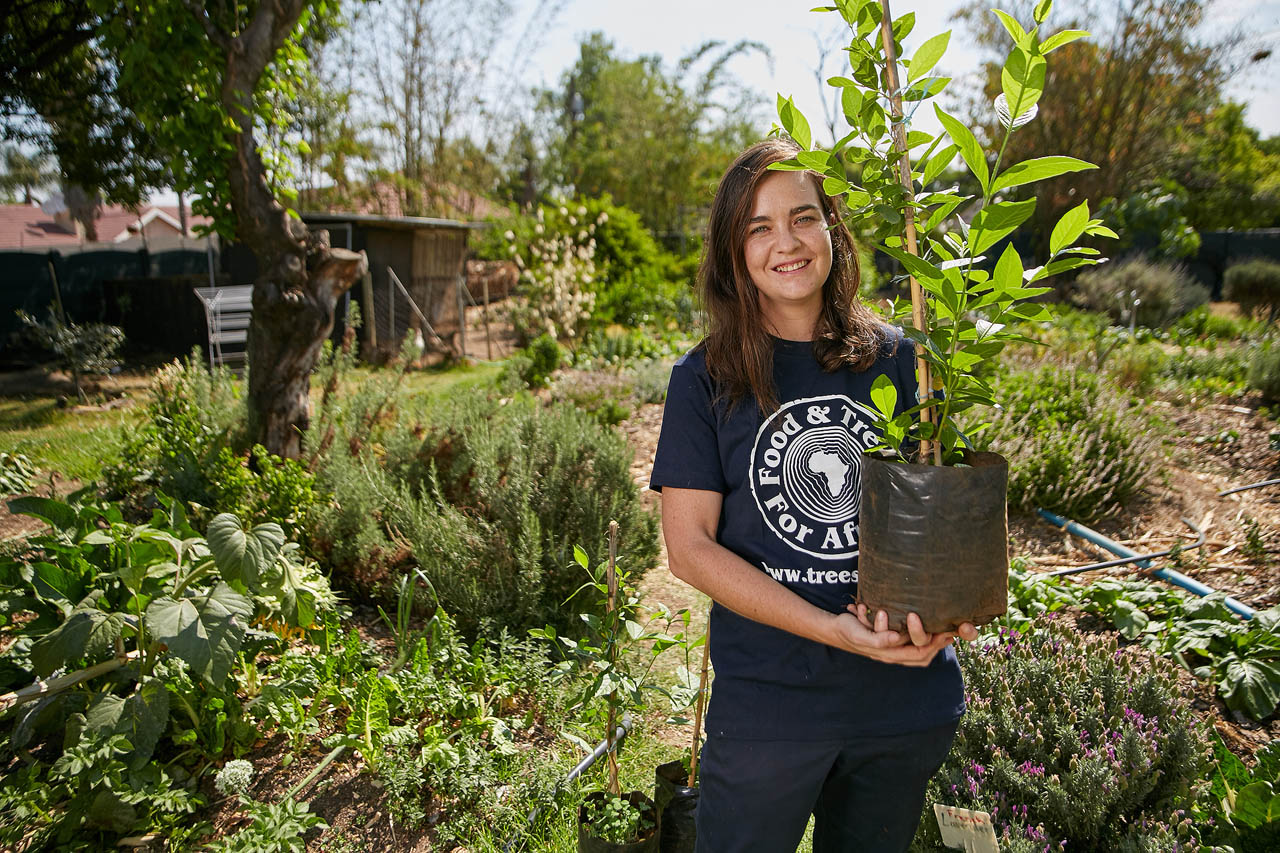
Tree planting and food security
Food & Trees for Africa began as ‘Trees for Africa’ in 1991. It was established to plant trees in townships that had been left devoid of trees due to Apartheid spatial planning policies, but quickly became Food & Trees for Africa as the need to address food security in those same areas became increasingly apparent. Since then, FTFA has been setting the benchmark in terms of tree planting, food security, and carbon offsetting nationally. “We’re the most impactful food security non-profit in the country, with programmes running at homes and schools as well as small scale farms,” explains Emily. “In terms of the non-profit space we are run very efficiently, to ensure that almost all funding goes directly towards beneficiaries we serve.”
An inspiring vision
Food & Trees for Africa is very clear on the world they would like to see. “Our vision is for a world where the people of Southern Africa are provided a sustainable livelihood that does not negatively affect the environment,” says Emily. “We see a sustainable future that provides for everyone, as the effects of manmade climate change are halted and reversed. Our vision works toward a point in time where people are educated, understand, and respect the link between the environment, themselves and their prosperity.”
A digital interface
This vision is communicated via their website, which serves as a digital interface between FTFA and their beneficiaries and donors. “This interface enables us to collect donations, raise awareness, and share impact stories,” explains Emily. “It is also the platform through which beneficiary organisations can apply to us for support.”
“We chose xneelo because they are known for their reliability, and the product because of its price. As a non-profit, most of our funding is earmarked for the beneficiaries which we serve, and so we needed a product that was not too costly and provided value for money. xneelo has done really well to deliver the service as advertised.”



